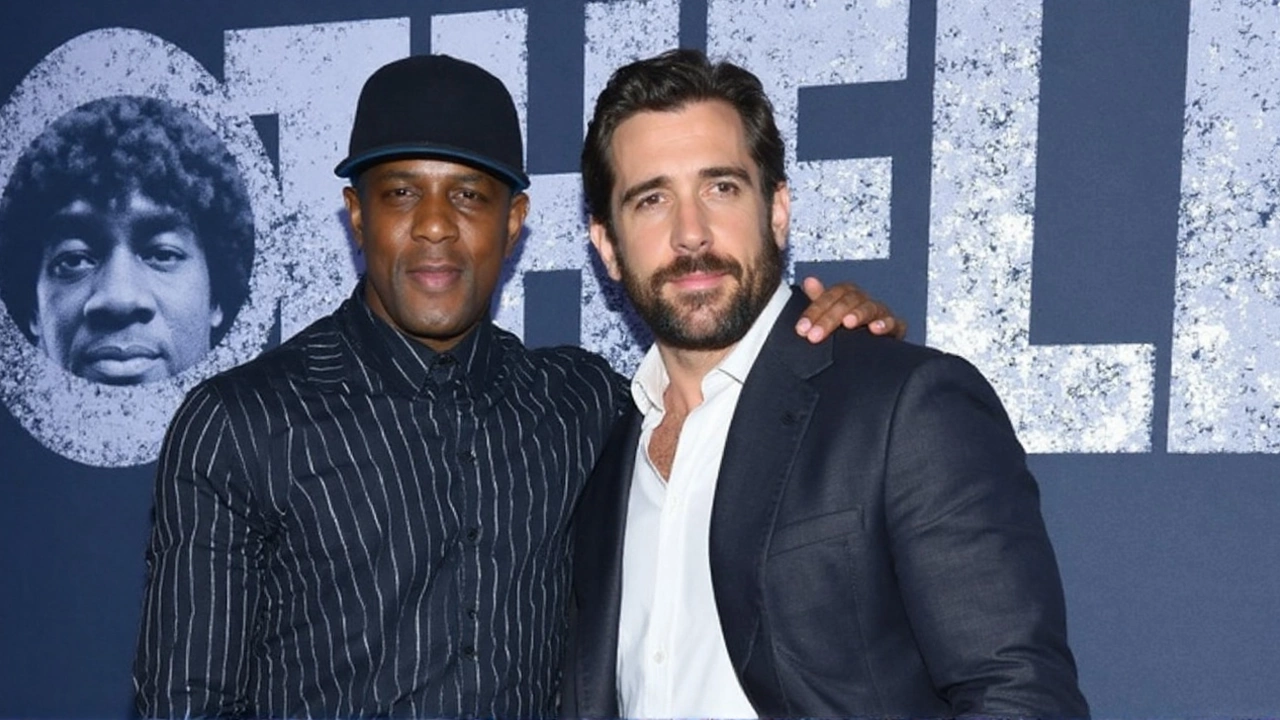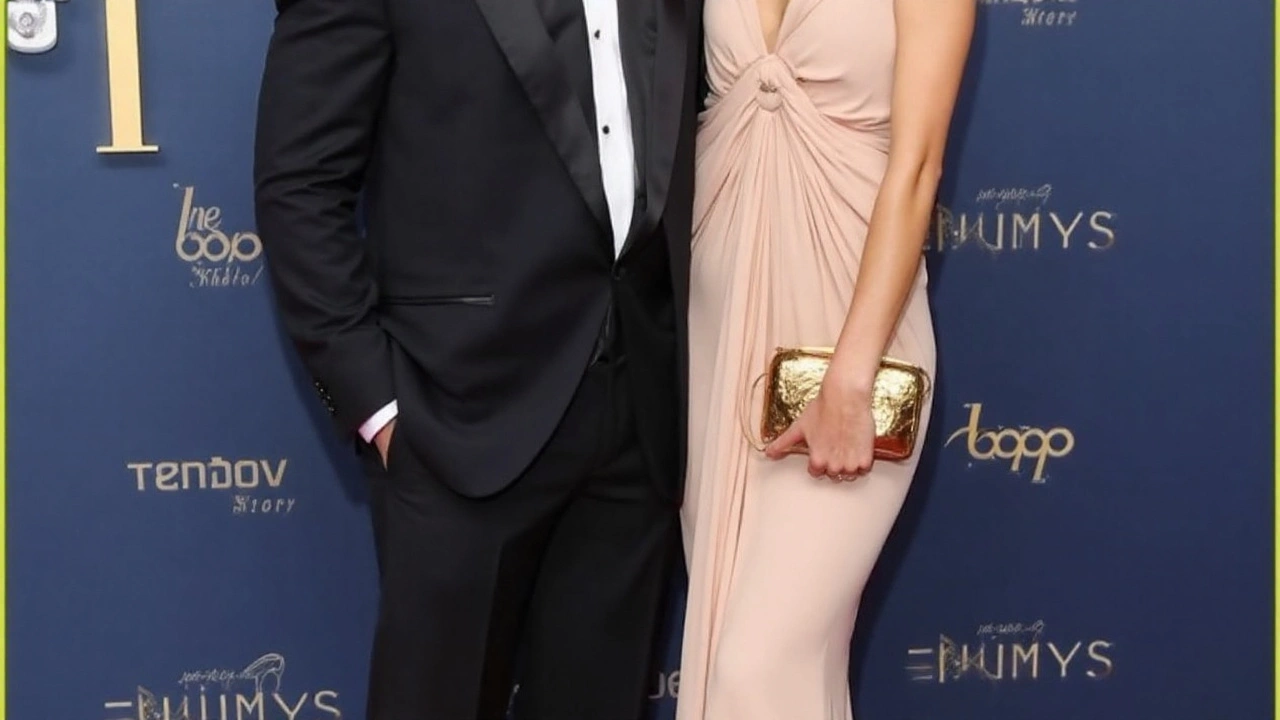Red carpet presence and a quiet romance
Jake Gyllenhaal didn’t just show up at the 77th Primetime Emmy Awards—he anchored one of the night’s most talked-about ensembles. The 44-year-old actor arrived at the Peacock Theater in Los Angeles wearing a tailored Prada suit, walking the carpet with longtime girlfriend Jeanne Cadieu. Cameras caught a relaxed, confident pair who seemed content to let the work do the talking.
This was a big night for Gyllenhaal, who earned a nomination for Outstanding Lead Actor in a Limited or Anthology Series or Movie for Presumed Innocent. It’s a milestone in a screen career that’s skewed heavily toward films, and a sign that his move into prestige television has landed with real weight. The limited series put him at the center of a thorny legal drama—exactly the kind of pressure-cooker part he tends to sharpen rather than simply carry.
Cadieu’s appearance alongside him added a personal note to a very public moment. The couple keeps their relationship low-key and chooses their red carpets carefully. When they do step out, it’s usually tied to a meaningful professional beat, and Sunday night fit that pattern: a nomination, a dress-coded theater, and a project that’s anchored months of conversation in awards circles.
Gyllenhaal wasn’t alone. He walked the carpet with Presumed Innocent co-stars Ruth Negga and Bill Camp, both nominated in supporting categories. Their presence signaled how the series spread its recognition across the cast, not just its headliner. The trio moved through the arrival line like a tight unit—part victory lap, part team huddle before the envelopes opened.
- Jake Gyllenhaal — Outstanding Lead Actor in a Limited or Anthology Series or Movie
- Ruth Negga — Outstanding Supporting Actress in a Limited or Anthology Series or Movie
- Bill Camp — Outstanding Supporting Actor in a Limited or Anthology Series or Movie

Why Presumed Innocent landed here
Presumed Innocent adapts Scott Turow’s bestselling legal thriller, a story most viewers know from the 1990 film adaptation. The series reworks the premise for a modern audience: a star prosecutor who’s dragged into a murder case that hits brutally close to home. Its engine isn’t just the courtroom—it’s the fallout at home, the office politics, and the creeping dread of not knowing who to trust. That blend gave Gyllenhaal a lot to play with: ambition, panic, and the stubborn need to look in control when the floor is shifting.
The show’s supporting bench is part of why it stuck. Negga’s nomination speaks to the series’ emotional core—how the case ricochets through a relationship and tests what’s left of trust. Camp’s nod highlights the institutional backdrop: offices and corridors where quiet conversations can change the course of a life. Together, the nominations suggest a production that built its tension on character, not just plot mechanics.
For Gyllenhaal, the role feels like a logical next step. He’s long favored characters under strain—think moral tightropes, contained explosions—and television’s longer runtime gives those impulses more room. Instead of sprinting to a third-act reveal, Presumed Innocent lets him play the slow burn: small hesitations, quick recalculations, the quiet moments when a person realizes their story is no longer theirs to tell.
The Emmys, back in a packed September slot at the Peacock Theater, put all of that on a bigger stage. The limited series field was crowded this year, a traffic jam of buzzy titles and heavyweight performances. That made Gyllenhaal’s nomination notable on its own—and the supporting nods for Negga and Camp a sign the series resonated beyond one headline performance.
There’s also the public-versus-private rhythm of celebrity on nights like this. Gyllenhaal and Cadieu’s approach—few public sightings, strategic moments—reads as intentional. It lets a red carpet moment carry more meaning when it happens, and it keeps the emphasis on the project. Sunday night, the emphasis stuck: a clean Prada line, a cluster of castmates, and a nomination that tracks with where Gyllenhaal’s work has been trending.
Presumed Innocent’s path to the Emmys wasn’t just about revisiting a familiar story. The series re-examined power and perception inside a justice system where narrative often outruns evidence. It asked the question awards voters tend to respond to: who are we when the story turns against us? That’s where TV can beat film—eight hours to bend a character until the cracks map the whole surface.
As the broadcast moved from arrivals to awards, the Presumed Innocent team had already scored a meaningful win: visibility. The show’s nominations placed it squarely in the center of TV’s biggest night, and its cast treated the evening like a collective statement. Whether or not the statuettes stacked up, the red carpet told its own story—one anchored by a lead actor stepping deeper into television and a series that knew how to use him.
